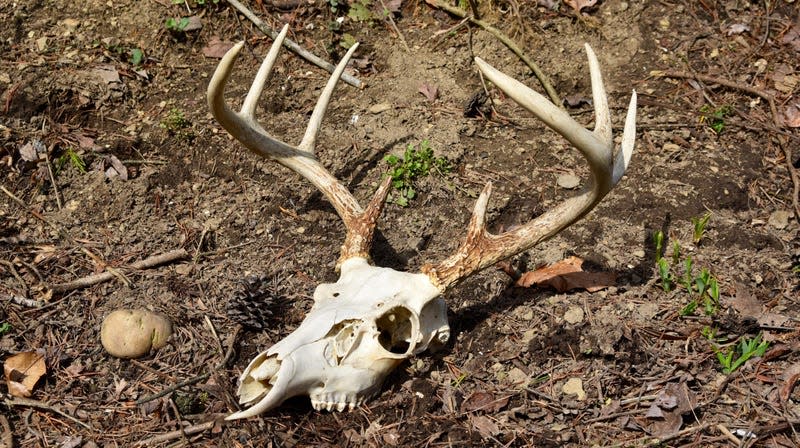Two Hunters Died of Rare Prion Disease. Doctors Suspect a First-of-Its Kind Deer Transmission

A new study might point to the first signs of a frightening public health scenario: Researchers found two recent cases of prion disease—universally fatal ailments caused by rogue proteins—that could have been caused by the victims eating contaminated deer meat. This connection is still far from confirmed, but doctors are calling for more research into the matter.
The report was published earlier this month in the journal Neurology. It describes the case of a 72-year-old man who visited doctors after he began to rapidly experience confusion and aggression sometime in 2022. Though he received treatment for his symptoms, which included seizures, his condition deteriorated quickly and he died just a month later. An autopsy then determined that he had developed a sporadic form of Creutzfeldt-Jakob disease, the most common prion disease in humans. What made the case most notable: the man had a hunting friend in the same lodge who had recently died of CJD and had eaten venison from the same deer population.
CJD and other prion diseases are caused by a misshapen form of the prion protein, which are naturally found in the brain and elsewhere (to this day, we’re not really sure what “normal” prions do). Misshapen prions can turn their normal counterparts rogue, and over time the exponential accumulation of these bad prions destroys the brain from the inside. Though it can take time, even decades, for this destruction to become apparent, there is no cure for prion disease once symptoms show up.
Other mammals can develop prion disease. Infamously, in the 1980s and 1990s, an outbreak of one such illness—bovine spongiform encephalopathy, or mad cow disease—spread widely across farms in the UK; a few years later, researchers was discovered that a small percentage of people who ate tainted cow meat contracted their own prion disease as a result, which came to be called variant CJD.
The threat of mad cow was successfully contained by the late 1990s, and only a few hundred people are thought to have gotten sick from eating contaminated meat. But another prion ailment has been spreading across deer and related animals in the U.S and Canada as of late, known as chronic wasting disease, or CWD. And the recent report authors suspect that history may now be repeating itself.
Most cases of CJD are considered sporadic, appearing out of the blue for no apparent reason. But the victim in this case was a hunter who regularly ate venison, as was his friend who died of CJD. Prion diseases in humans are incredibly rare, so the mere fact that these two cases occurred so close together is noteworthy.
“The patient’s history, including a similar case in his social group, suggests a possible novel animal-to-human transmission of CWD,” the report authors wrote.
Some studies in animals, including non-human primates, have found evidence that chronic wasting disease prions can potentially infect and sicken humans, while other research has come to the opposite conclusion. So the possibility of cross-species transmission remains plausible, if still unproven. Much like bacterial and viral diseases, there is a wide variety in the strains of prions that can make humans and animals sick. Although the man was diagnosed with a specific type of sporadic CJD, the doctors argue that more detailed testing would be needed to confirm whether the man’s prions were unlike the prions seen with CWD.
There have been other isolated reports of human CJD tied to the consumption of deer (and even squirrel) meat. These cases alone aren’t enough to prove that deer can be a vector of prion disease in humans, but the report authors say more has to be done to know for sure. “This cluster emphasizes the need for further investigation into the potential risks of consuming CWD-infected deer and its implications for public health,” they wrote.

